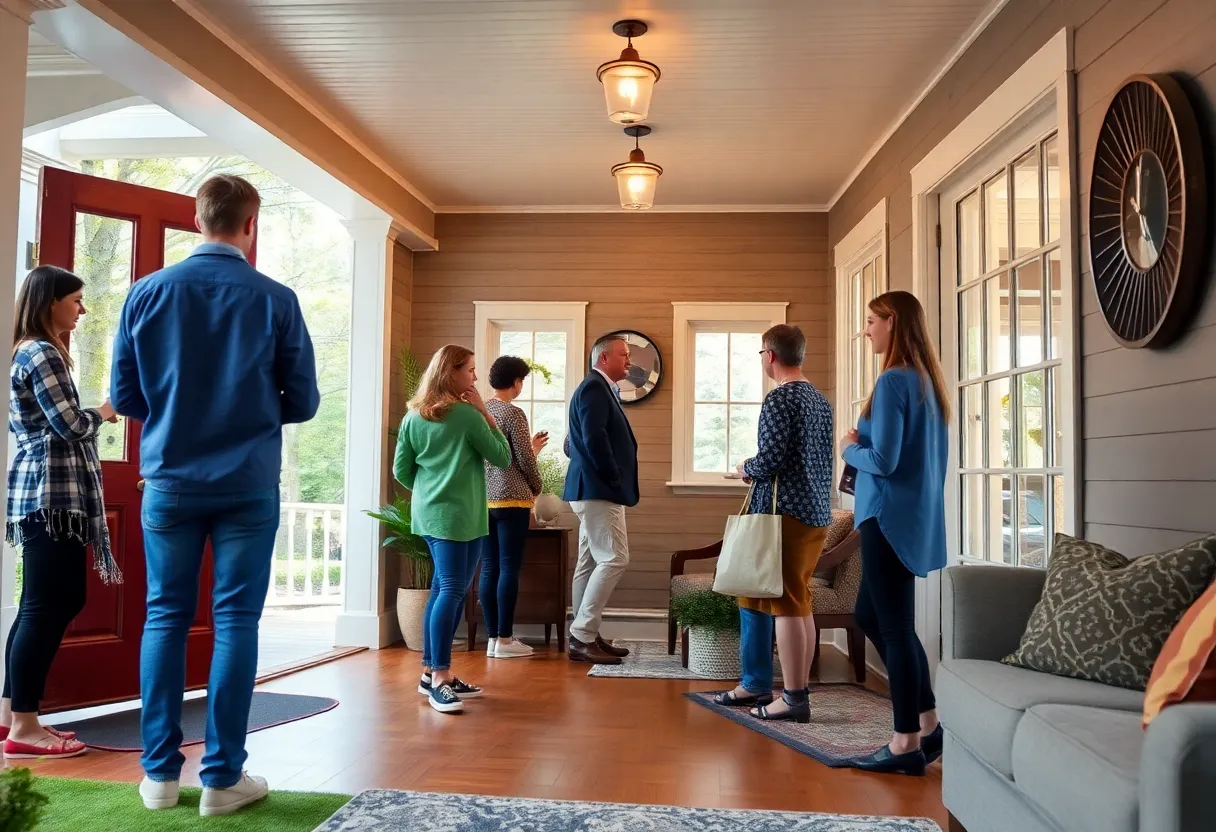How to Strategically Use Open Houses to Discover Your Ideal Home: A Guide for First-Time Buyers
Introduction
Embarking on the journey to purchase your first home is both exciting and challenging. A key strategy in this process is attending open houses—publicly scheduled showings meant to give prospective buyers a firsthand look at properties on the market. However, simply visiting open houses without a plan can lead to missed opportunities.
This guide outlines how first-time buyers can use open houses strategically to identify and evaluate potential homes with confidence and clarity. By understanding the purpose and best practices of attending open houses, you can streamline your house-hunting process and make well-informed decisions.
Understanding the Purpose of Open Houses
Why Open Houses Matter
Open houses serve multiple purposes, including generating interest, marketing the property, and allowing buyers to assess whether a home meets their needs. For first-time buyers, these events are an invaluable opportunity to explore multiple properties within a short timeframe.
They provide an environment to view homes without the pressure of a private appointment, making them especially advantageous for those who are just beginning their home search. Properly used, open houses offer insights into local neighborhoods, property features, and market trends.
Limitations to Recognize
While open houses are helpful, they are not a substitute for thorough due diligence. They typically showcase a snapshot of a property, often with the seller’s agent controlling the presentation. Understanding this limits your expectations and prepares you to ask the right questions.
Preparation Before Attending Open Houses
Define Your Priorities and Budget
Clarity on your must-have features—such as number of bedrooms, proximity to work, or yard size—guides your focus during open house visits. Establishing your financial parameters ensures you evaluate homes within your means, avoiding unnecessary viewing of unsuitable options.
Research the Market
Before attending, familiarize yourself with market values in your target neighborhoods. Understanding recent sale prices and listing trends helps you discern whether an open house is a potential good fit.
Compile a List of Open Houses to Visit
Prioritize properties based on your criteria. Use online tools to create a schedule, balancing quantity with quality—visiting the most promising houses first.
Prepare Your Questions and Checklist
Develop a set of focused questions related to maintenance, updates, neighborhood safety, etc. Additionally, prepare a checklist to evaluate key aspects during visits—layout, natural light, storage, and overall condition.
Maximizing the Benefits During the Open House
Arrive Early and Stay Attentive
This allows you to observe the property before the crowd arrives, noting details that may be obscured later.
Observe the Property and Neighborhood
Assess the overall condition, noting signs of wear or needed repairs. Observe neighborhood amenities, traffic patterns, and community activity to gauge suitability.
Engage the Agent with Focused Questions
Use your prepared questions to uncover crucial information, such as age of key systems, history of repairs, and seller motivations. Focused inquiries can reveal the property’s true value and ease your decision-making process.
Take Detailed Notes and Photos
Document your impressions and specific features for each property. Photos help you compare homes later without relying solely on memory.
Assess the Fit and Potential
Evaluate whether each property meets your priorities. Consider layout, flow, and potential for customization. Think about future resale value and energy efficiency to ensure long-term satisfaction.
Follow-Up Strategies After Attending Open Houses
Review Your Notes and Reassess Priorities
Compare properties objectively, identifying which homes align most closely with your aspirations.
Engage with a Real Estate Professional
Consult an agent to interpret information gathered during the open house. Their insights can clarify questions about market conditions, pricing strategies, and negotiation tactics.
Plan Additional Viewings or Private Appointments
Open houses can serve as preliminary screening. If a property interests you, schedule private viewings for a deeper evaluation and potential offer negotiations.
Maintain Flexibility and Patience
Real estate transactions often require time. Avoid rushing decisions based solely on open house impressions. Use the data collected to make thoughtful, strategic choices.
Strategies for Using Open Houses to Gain Competitive Advantage
Attend Multiple Open Houses in a Short Span
This broad approach exposes you to diverse options, helping you develop a refined sense of market standards and your personal preferences.
Look Beyond the Surface
While appearance matters, focus on underlying features such as insulation, wiring, and plumbing. These factors influence your renovation costs and future maintenance.
Identify Motivated Sellers
During interactions and observations, notice signs of seller motivation—price reductions, flexible schedules, or earnest inquiries. These homeowners may be more receptive to negotiations.
Utilize Open Houses to Test Market Pricing
Viewing multiple homes within your budget helps you understand pricing nuances, setting realistic expectations before making an offer.
Common Pitfalls to Avoid During Open Houses
Jumping to Conclusions
Resist the urge to make quick judgments. Take comprehensive notes and revisit promising properties later before deciding.
Overlooking Internal Factors
Focus not only on aesthetics but also on structural elements, potential renovation costs, and functionality for your lifestyle.
Ignoring Neighborhood Dynamics
The home’s exterior and the neighborhood’s ambiance are equally critical. Assess safety, schools, and access to amenities to ensure holistic satisfaction.
Missing Market Context
Compare open house properties to current listings and recent sales. Understanding market trends ensures your offer is competitive yet fair.
Conclusion
When approached strategically, open houses transform from mere showings into powerful tools for first-time buyers. They offer a unique chance to explore properties, gather crucial information, and refine your home preferences.
Effective preparation, attentive observation, and follow-up actions maximize the advantages of open houses. This disciplined approach fosters confident decision-making, ensuring you discover a home that truly matches your goals and lifestyle.
Remember, each open house is not just a viewing but a step toward your new home. By maintaining focus and employing a structured strategy, you can navigate the market more effectively and secure the ideal property with clarity and assurance.
Author: STAFF HERE INDIANAPOLIS WRITER
The INDIANAPOLIS STAFF WRITER represents the experienced team at HEREIndianapolis.com, your go-to source for actionable local news and information in Indianapolis, Marion County, and beyond. Specializing in "news you can use," we cover essential topics like product reviews for personal and business needs, local business directories, politics, real estate trends, neighborhood insights, and state news affecting the area—with deep expertise drawn from years of dedicated reporting and strong community input, including local press releases and business updates. We deliver top reporting on high-value events such as the Indianapolis 500, Indy Jazz Fest, and the Indiana State Fair. Our coverage extends to key organizations like the Indy Chamber and Visit Indy, plus leading businesses in motorsports and healthcare that power the local economy such as Indianapolis Motor Speedway and IU Health. As part of the broader HERE network, we provide comprehensive, credible insights into Indiana's dynamic landscape.





